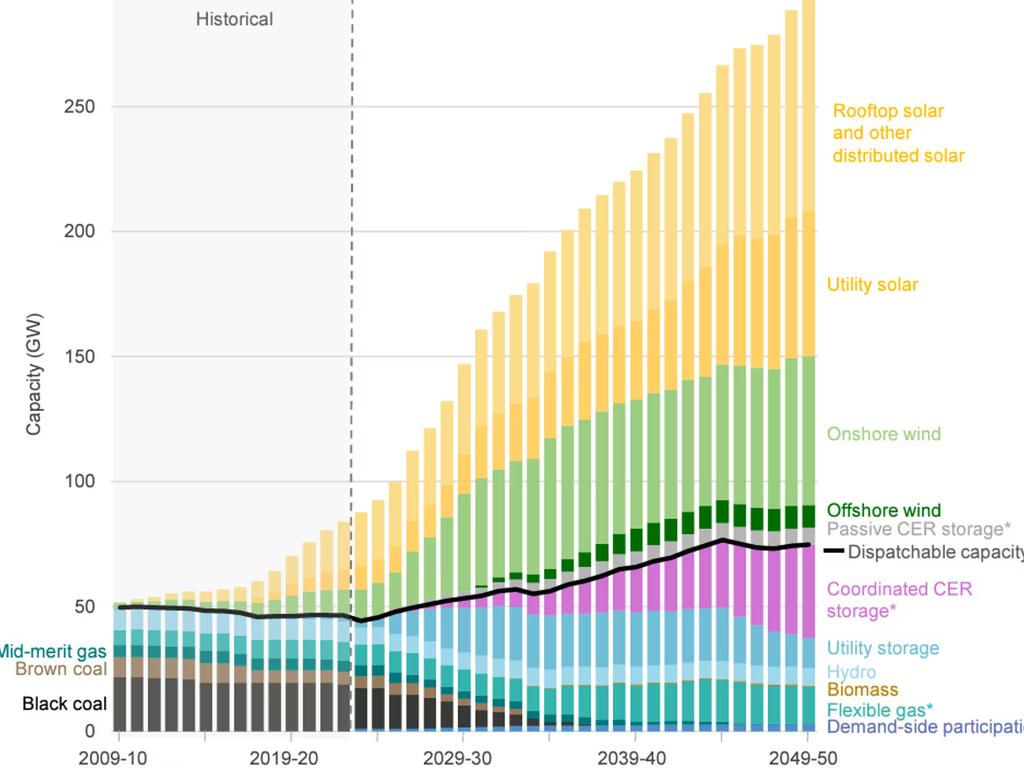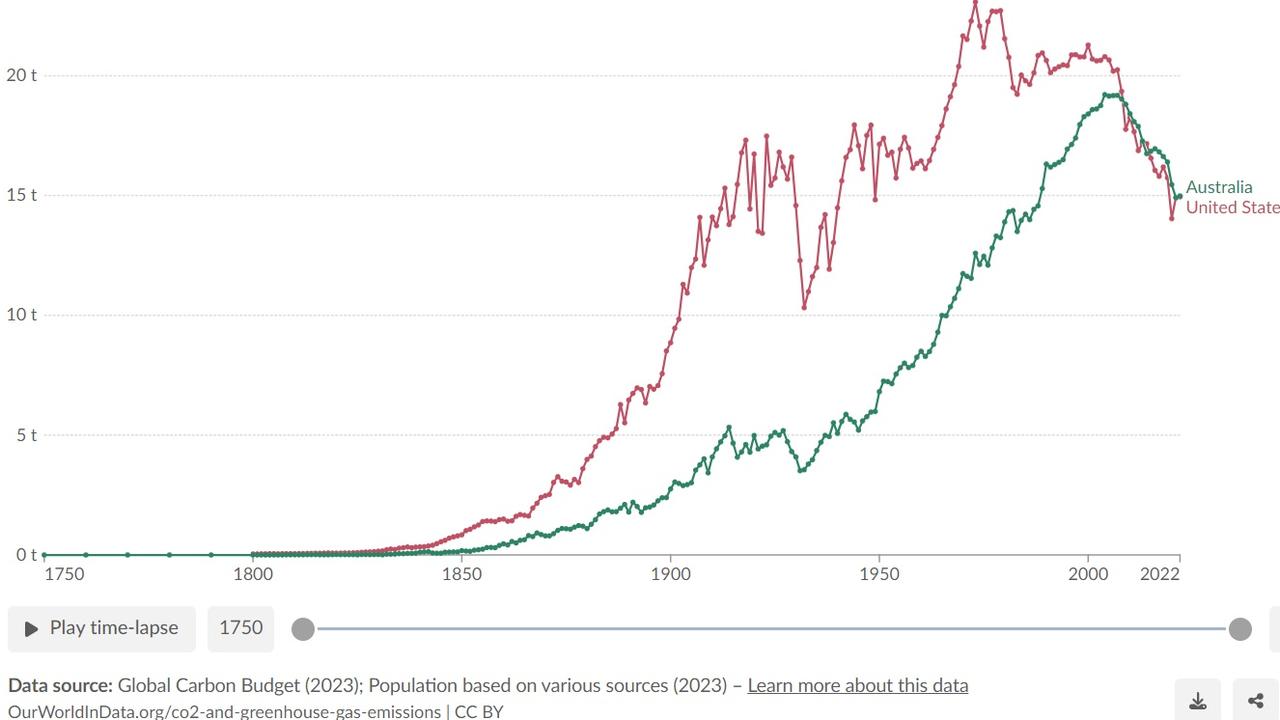‘Twilight zone’: One thing energy row misses
There’s a big question being posed in Australian politics right now, but it ignores the easiest and only viable solution to the energy conundrum.
ANALYSIS
The Twilight Zone of Australian politics is posing a key question which has stumped the country for a decade; do you support renewables or nuclear for the energy transition?
This false binary ignores the only viable and easiest solution to the energy conundrum; which is to use more gas for power.
Gas power produces half the emissions of coal, and whether you ultimately support renewables or nuclear in the long run; gas is essential while either rolls out over the next 25 years.
Gas-fired power is the perfect support for renewables because gas turbines can be switched on and off quickly, and can provide dispatchable power when the sun goes down and the wind doesn’t blow.
The Australian Energy Market Operator (AEMO) knows this and recently declared that the renewables transition will require the equivalent of 25 “gas peaker” power stations:

Gas-fired power stations are also cheap to build, in fact, we could build all 26 gas peakers for the cost of one nuclear power plant.
Australia’s east coast has oodles of cheap gas to fuel them, and, existing coal-fired power stations can quickly be converted to gas-fired even more cheaply; without the need for new infrastructure beyond gas access.
There are still 15 of these coal plants in the National Electricity Market.
The US has converted more than 100 coal power stations to gas since 2009, this is how it has surpassed Australian decarbonisation despite even more fractious politics than our own.

Greater gas-fired power is the only way that Australia will meet its Paris Agreement emission reduction targets.
So, what’s the problem?
Given these huge advantages, why is gas being ignored in the debate?
During and after the Global Financial Crisis of 2008, east coast gas reserves were sold off to foreign oil companies.
Mostly in Queensland, the reserves are now 85 per cent owned by an LNG export cartel that operates out of Curtis Island.
This means that although the east coast has stacks of cheap gas, it mostly goes offshore, 72 per cent to China, which, unbelievably, often resells it to other countries:

The gas export cartel has deliberately driven up the price of locally supplied gas such that it is 500 per cent higher priced than historical averages and is unviable as a power-production fuel.
Indeed, the artificial shortages engineered by the cartel are so acute that there is often no gas at all and the NEM reverts to load shedding (blackouts) instead.
After Russia invaded Ukraine in 2022, the cartel war-profiteered to the tune of prices 2200% above historical averages.
This was/is central to the burst of inflation impoverishing households over the past two years.
So, nobody wants to build a gas peaker or convert a coal power station to gas because there is no security of supply of the fuel.
Why doesn’t Canberra act?
Yet, no politician will touch the gas cartel owing to a toxic mix of fear and corruption.
When Ukraine War profiteering was underway, the Albanese government cowered.
A Labor source said Dr Chalmers was still “scarred” from the failed “super profits” mining tax in 2010 when he was a senior adviser to then treasurer Wayne Swan.
When it did finally cap the gas price at $12Gj, which is still too high for power use, the price lasted only months before blasting off again.
On the LNP side of the aisle, there is also a sorry record.

The Turnbull government installed the Australian Domestic Gas Security Mechanism (ADGSM) in 2017 which can force the cartel to provide more gas locally. But it has never been used.
The cartel bribes both parties with donations, threatens them with publicity campaigns, and recruits pollies with sinecures.
It also sponsors think tanks like the Grattan Institute to produce bad ideas to cover its baleful impact.
The courage to act
If Canberra does not break the cartel, Australia’s energy transition will fail via a combination of price shocks and blackouts.
This will embed de-industrialisation, increase supply chain reliance upon China, and continuously weigh on budgets, as well as gut consumer income.
The gas cartel is a cancer at the heart of the economy that must be cut out or all will suffer.
The good news is that it can easily be cured with stronger domestic reservation policies or, even better, a gas export levy set at $6Gj which collects billions in revenue while breaking the incentive to over-export.
All that is missing is a politician with the courage to act in your interests.
David Llewellyn-Smith is Chief Strategist at the MB Fund and MB Super. David is the founding publisher and editor of MacroBusiness and was the founding publisher and global economy editor of The Diplomat, the Asia Pacific’s leading geopolitics and economics portal. He is the co-author of The Great Crash of 2008 with Ross Garnaut and was the editor of the second Garnaut Climate Change Review.





